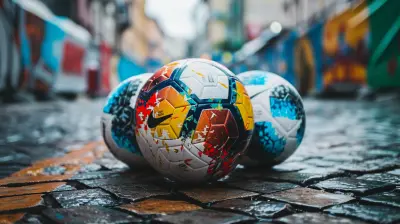How Social Media Amplifies the Fallout from Doping Scandals
6 November 2025
Doping scandals have been a stain on the integrity of sports for decades. But with social media in the mix, the fallout now spreads faster and hits harder than ever before. Whether it's a leaked test result, a viral accusation, or an athlete's desperate attempt at damage control, platforms like Twitter, Instagram, and TikTok ensure that no scandal goes unnoticed.
So, how exactly does social media amplify the impact of doping scandals? Let’s break it down.

The Speed of Scandal: News Travels Fast
Back in the day, scandals took time to unfold. A journalist would investigate, an article would be published, and only then would the public start talking. Now, one tweet from a credible source—or even an anonymous account—can send shockwaves across the internet within seconds.Instant Exposure
Before an official statement is released, social media users are already dissecting the news. Leaks and rumors spread like wildfire, often forcing athletes and sports organizations to respond before they’re fully prepared.No Place to Hide
Once a doping scandal breaks, avoiding the spotlight is nearly impossible. Every major sports page, journalist, and fan account will jump on the trend, ensuring that the athlete in question becomes the top discussion point.
Public Opinion Hits Harder Than Ever
Social media isn't just a place where news spreads—it's where opinions are shaped, and reputations are built or destroyed.The Court of Public Opinion
Forget waiting for the official verdict. The internet decides guilt or innocence almost immediately. Fans dissect every detail, share their thoughts in real-time, and often come to conclusions before any formal investigations are completed.Cancel Culture and Boycotts
If the public turns against an athlete, it's not just criticism they face. Sponsorships can be lost overnight, brands distance themselves, and years of hard work can unravel in a matter of tweets. Fans may also boycott events, refusing to support athletes they believe have "cheated."
The Role of Athletes' Social Media Pages
Athletes used to rely on press conferences or carefully crafted PR statements to address controversies. Now, they take to Instagram lives, Twitter threads, and even TikTok videos to share their side of the story.Damage Control in Real-Time
Social media allows athletes to address allegations immediately. Some craft heartfelt apologies, while others aggressively deny the accusations. Either way, their words are scrutinized, analyzed, and often turned into memes.The Risk of Saying Too Much
Addressing a scandal directly is a double-edged sword. While some statements earn sympathy, others backfire, making things even worse. A poorly worded apology or an angry rant can fuel public outrage rather than settle it.
The Power of Memes and Viral Content
In today’s digital world, serious issues often become entertainment. Doping scandals are no exception.Memes and Jokes Spread Like Wildfire
A single screenshot, a funny caption, or a sarcastic tweet can redefine how a scandal is perceived. If an athlete reacts poorly, their response might be turned into a meme that follows them for the rest of their career.Satire Shapes Public Perception
Memes aren’t just jokes—they influence how people think. If an athlete is constantly ridiculed online, their reputation suffers beyond the doping allegations. Being labeled a "cheater" through viral content can tarnish their legacy permanently.The Role of Fans and Influencers
Social media allows everyone to have a voice, and that includes fans, former athletes, and influencers who specialize in sports commentary.Influencers Shape the Narrative
Sports analysts, YouTubers, and influencers can make or break an athlete’s public image. A well-respected commentator calling out a doping scandal can sway thousands, if not millions, of opinions.Fan Reactions Can Shift the Conversation
Not all athletes caught in doping scandals lose fan support. Some maintain loyal followings that defend them at every turn. Hashtags like #JusticeFor[athlete’s name] often trend, showing that public opinion isn't always one-sided.
The Long-Term Consequences
Doping scandals no longer fade away after a few weeks in the news cycle. Thanks to social media, they have a lasting digital footprint.The Internet Never Forgets
Even years later, if you Google an athlete’s name, their doping scandal will likely pop up in the search results. Old tweets and articles resurface whenever a related topic trends.Future Opportunities Are Affected
Athletes caught in doping scandals may struggle to rebuild their careers. Even if they stage a comeback, brands and leagues may hesitate to work with them due to the risk of reigniting public backlash.Conclusion
Social media has turned doping scandals into high-speed, high-stakes dramas. What used to be a slow-burning controversy now explodes in real-time, shaping public perception with tweets, memes, and viral videos. Athletes not only have to worry about official penalties but also the relentless scrutiny of internet users who never let scandals fade away.In this digital age, a doping scandal isn’t just a sports controversy—it’s a social media event, and once the internet has spoken, there's no going back.
all images in this post were generated using AI tools
Category:
DopingAuthor:

Onyx Frye
Discussion
rate this article
1 comments
Ivan Brooks
Great insights! Social media's role in amplifying doping scandals is increasingly significant and concerning.
November 11, 2025 at 1:42 PM

Onyx Frye
Thank you! Indeed, social media's rapid dissemination of information can magnify the impact of these scandals far beyond traditional media.


